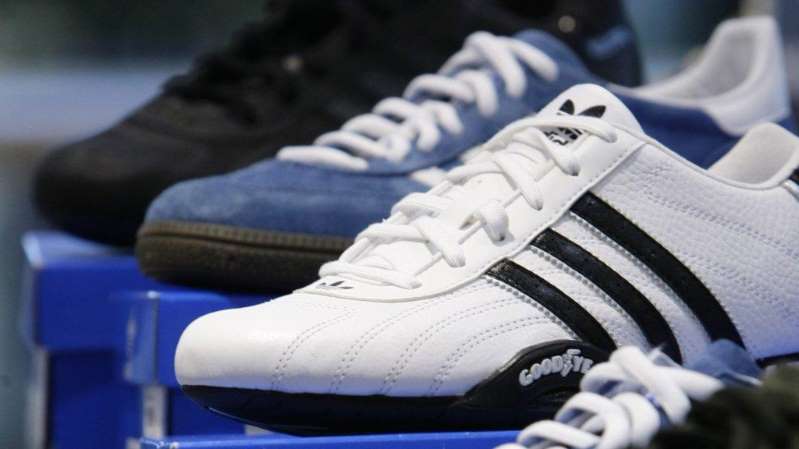Second largest sporting goods manufacturer is aiming for strong sales and profit growth

Adidas blows to catch up. The world's second largest sporting goods manufacturer wants to leave the sales and profit slump of last year behind, the German company announced on Wednesday in Herzogenaurach. Revenue is expected to increase by 15 to 19 percent in 2021, after having fallen by 14 percent in 2020, adjusted for currency effects, to 19.8 billion euros. Net profit is expected to triple to 1.25 to 1.45 billion euros – without the subsidiary Reebok, which is for sale.
The announced separation from the ailing US brand Adidas will cost around 200 million euros. In 2020, profit from continuing operations fell by 78 percent to EUR 429 million (2019: EUR 1.92 billion).
Adidas CEO Kasper Rorsted said: “We will quickly get off the starting blocks in the first year of our new strategy cycle.” The gross margin is expected to reach the level of 2019 – before the pandemic – at around 52 percent in 2021. In 2020 it had fallen to 49.7 percent.
“We have never had a year like 2020,” explained Rorsted. In the spring, the group even threatened to run out of money because stores were closed across the board and the goods ordered were on the dump. At the end of the year, inventories were 4.4 billion euros, only eight percent higher than in the previous year; in the fourth quarter alone they were reduced by 300 million euros. Despite the pandemic-related store closings in the European winter, Adidas was in the black in the fourth quarter. At EUR 225 (2019: 245) million, the operating result was above the planned EUR 100 to EUR 200 million.
In the past year, Adidas bailed out its online business in particular. The group sold goods for well over four billion euros on the Internet, an increase of 53 percent.
Rorsted made the decision to sell Reebok back in February. The US brand was in the black in 2020 with 13 (2019: 59) million euros, but recorded a stronger decline in sales than Adidas at 16 percent. It contributes just 7.5 percent to group sales. Because IT, warehouses, offices and shops shared with Adidas first have to be laboriously unbundled, Reebok is likely to incur costs even after the sale this year and next year.

